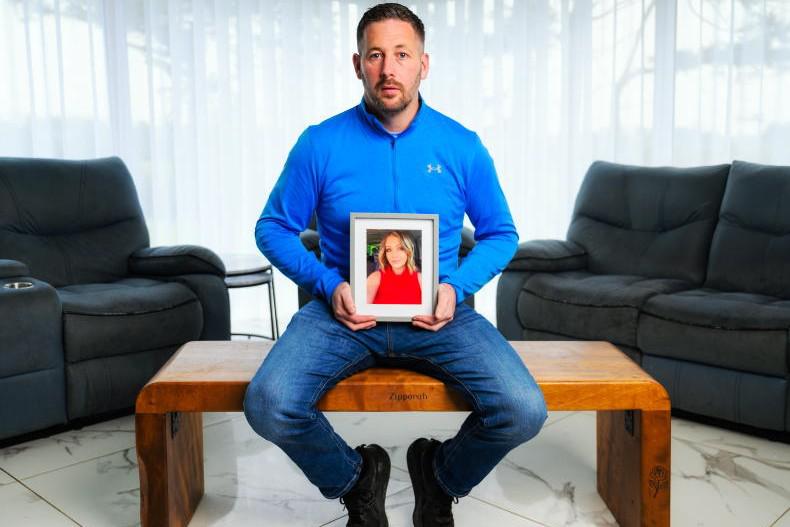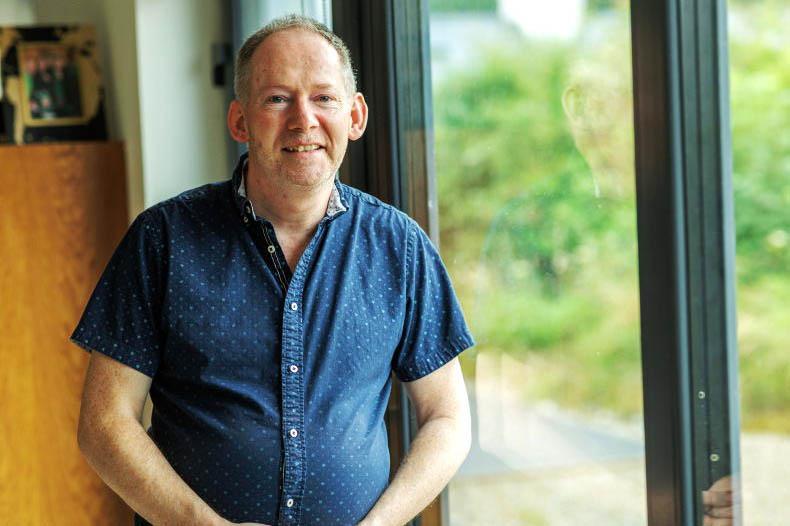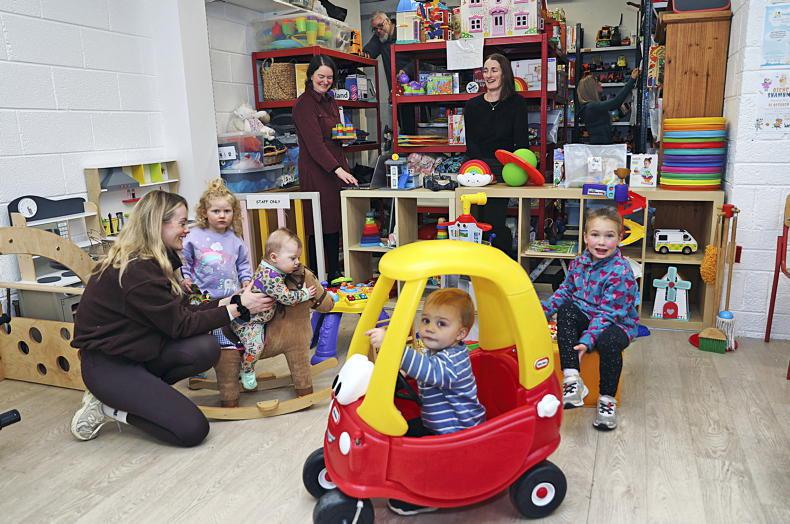I don’t know about the rest of ye, but the number one topic of conversation over the past several weeks has been the Netflix series Adolescence. If you haven’t seen it yet, I might say: proceed with caution. But it is a must-watch for anyone currently parenting or caring for school-aged children.
Adolescence is a four-episode series following the murder of a teenage girl. The story is told from the perspective of the girl’s killer – a teenage boy who is labelled on social media as being an ‘incel’ – or, an ‘involuntary celibate’.
I first heard about ‘incels’ years ago, after a school shooting in the United States, when they reported that the gunman identified as one. In laymen’s terms, an incel is someone who feels that they are unattractive to the opposite sex and have little to offer in a relationship.
Feeling this way about oneself is problematic enough, but it is even scarier to learn that there is an entire online movement of ‘incels’. For the most part, they are young men who are influenced by the opinions of misogynistic men.
This movement can invoke violence against women and others who are not part of the incel movement. I have long thought it’s a scary time to be growing up, with social media and an increasingly digitised world.
Our children aren’t just exposed to pornography and online bullying; there is also the constant worry that they would unknowingly be filmed, and that a video of them might be shared amongst their peer groups.
Anyway, this series on Netflix is done entirely from the perspective of the young man and his family. At first, I criticised the series for not focusing more on the victim. After all, a young girl was killed.
Parents of sons might be worried that their child will fall into these online traps and harm themselves or others, but as a parent of daughters, I am worried that my children will be the victim. We can’t forget that in the vast majority of all domestic violence cases, women are the victims.
So yes, I criticised that element of the series, but then I did more research. We have spent decades building up young women to succeed and to fight for equal rights. But as young women become more empowered, are young men starting to feel left behind?
Girls tend to naturally excel in school environments. Studies have shown that boys benefit from more hands-on learning opportunities and longer breaks so they can run around and burn energy. Increasingly, girls are outperforming boys in college.
Girls also appear to have a greater number of role models in their lives. As divorce rates increase, young men seem to have fewer male role models in theirs. Divorced dads, even hands-on divorced dads, aren’t always there for bedtimes or drives to school; the mundane parts of the day, but the times when meaningful connections tend to happen.
There are more female teachers in the classroom than male teachers, and it seems that an increasing number of adult men are moving away from coaching or mentoring roles. I’ve been told they worry someone might deem those relationships with kids as inappropriate. Ultimately, some boys are having trouble learning what it means to be masculine, and how to be a man in the modern world. They need our help.
I might not be a boy mam – and as my daughters get older, my worries for their safety and welfare will likely grow – but I think we need more community support for our boys.
They need those role models, to show them that a real man can be kind and gentle.
We need to teach all of our kids – boys and girls – that it’s ok to express emotions; that our feelings are valid.
The nice thing about life in rural Ireland is that I see community support everywhere I go. I was never great at sports, but I see the value that the GAA brings to our small parish. Our local pub isn’t just a watering hole – it is the main venue for community fundraisers. Our local shop is always there with ice creams on the last day of school before summer holidays. All of this creates environments where male and female role models are present and provide a safe space for our kids to get off their phones and work on real-life relationships.
If we keep our rural areas strong, we can raise resilient girls and boys.
Read more
‘Over the years, I have unwittingly formed a girl gang in my own home'
Desperate Farmhusband: could they make a bolus for your spouse?
I don’t know about the rest of ye, but the number one topic of conversation over the past several weeks has been the Netflix series Adolescence. If you haven’t seen it yet, I might say: proceed with caution. But it is a must-watch for anyone currently parenting or caring for school-aged children.
Adolescence is a four-episode series following the murder of a teenage girl. The story is told from the perspective of the girl’s killer – a teenage boy who is labelled on social media as being an ‘incel’ – or, an ‘involuntary celibate’.
I first heard about ‘incels’ years ago, after a school shooting in the United States, when they reported that the gunman identified as one. In laymen’s terms, an incel is someone who feels that they are unattractive to the opposite sex and have little to offer in a relationship.
Feeling this way about oneself is problematic enough, but it is even scarier to learn that there is an entire online movement of ‘incels’. For the most part, they are young men who are influenced by the opinions of misogynistic men.
This movement can invoke violence against women and others who are not part of the incel movement. I have long thought it’s a scary time to be growing up, with social media and an increasingly digitised world.
Our children aren’t just exposed to pornography and online bullying; there is also the constant worry that they would unknowingly be filmed, and that a video of them might be shared amongst their peer groups.
Anyway, this series on Netflix is done entirely from the perspective of the young man and his family. At first, I criticised the series for not focusing more on the victim. After all, a young girl was killed.
Parents of sons might be worried that their child will fall into these online traps and harm themselves or others, but as a parent of daughters, I am worried that my children will be the victim. We can’t forget that in the vast majority of all domestic violence cases, women are the victims.
So yes, I criticised that element of the series, but then I did more research. We have spent decades building up young women to succeed and to fight for equal rights. But as young women become more empowered, are young men starting to feel left behind?
Girls tend to naturally excel in school environments. Studies have shown that boys benefit from more hands-on learning opportunities and longer breaks so they can run around and burn energy. Increasingly, girls are outperforming boys in college.
Girls also appear to have a greater number of role models in their lives. As divorce rates increase, young men seem to have fewer male role models in theirs. Divorced dads, even hands-on divorced dads, aren’t always there for bedtimes or drives to school; the mundane parts of the day, but the times when meaningful connections tend to happen.
There are more female teachers in the classroom than male teachers, and it seems that an increasing number of adult men are moving away from coaching or mentoring roles. I’ve been told they worry someone might deem those relationships with kids as inappropriate. Ultimately, some boys are having trouble learning what it means to be masculine, and how to be a man in the modern world. They need our help.
I might not be a boy mam – and as my daughters get older, my worries for their safety and welfare will likely grow – but I think we need more community support for our boys.
They need those role models, to show them that a real man can be kind and gentle.
We need to teach all of our kids – boys and girls – that it’s ok to express emotions; that our feelings are valid.
The nice thing about life in rural Ireland is that I see community support everywhere I go. I was never great at sports, but I see the value that the GAA brings to our small parish. Our local pub isn’t just a watering hole – it is the main venue for community fundraisers. Our local shop is always there with ice creams on the last day of school before summer holidays. All of this creates environments where male and female role models are present and provide a safe space for our kids to get off their phones and work on real-life relationships.
If we keep our rural areas strong, we can raise resilient girls and boys.
Read more
‘Over the years, I have unwittingly formed a girl gang in my own home'
Desperate Farmhusband: could they make a bolus for your spouse?









SHARING OPTIONS